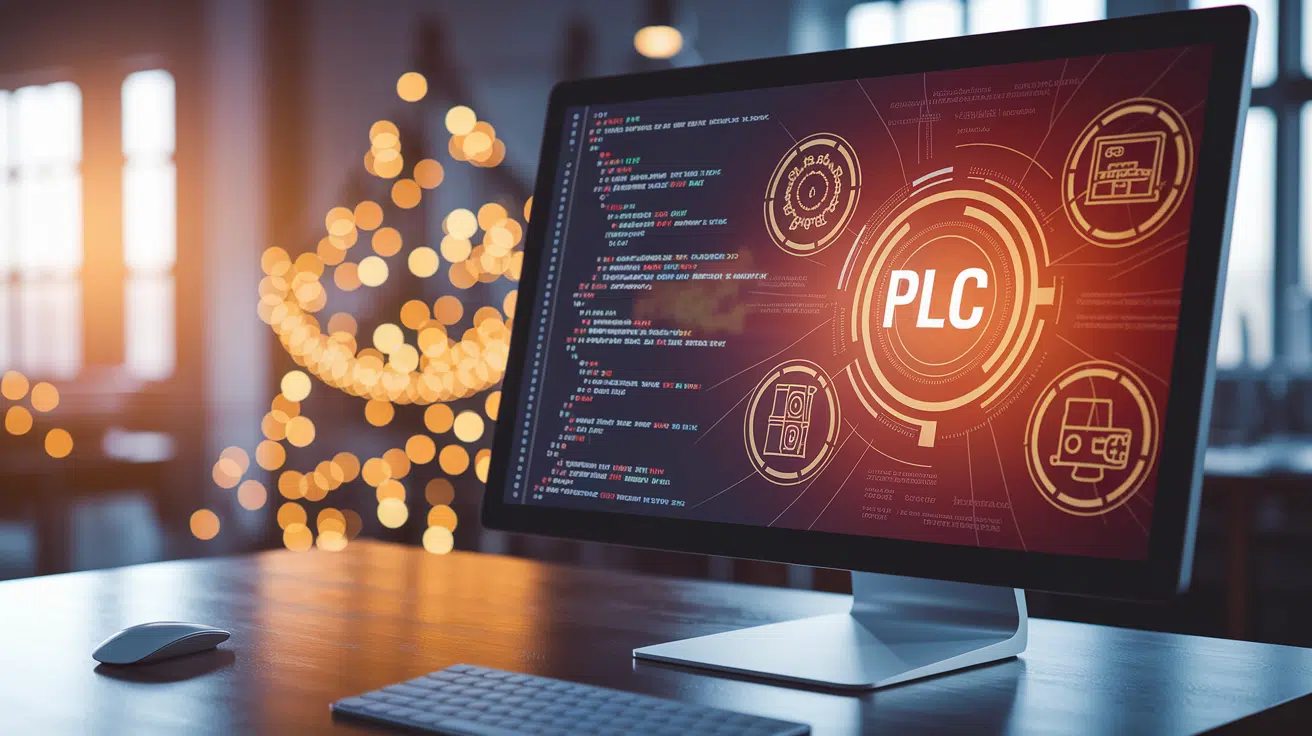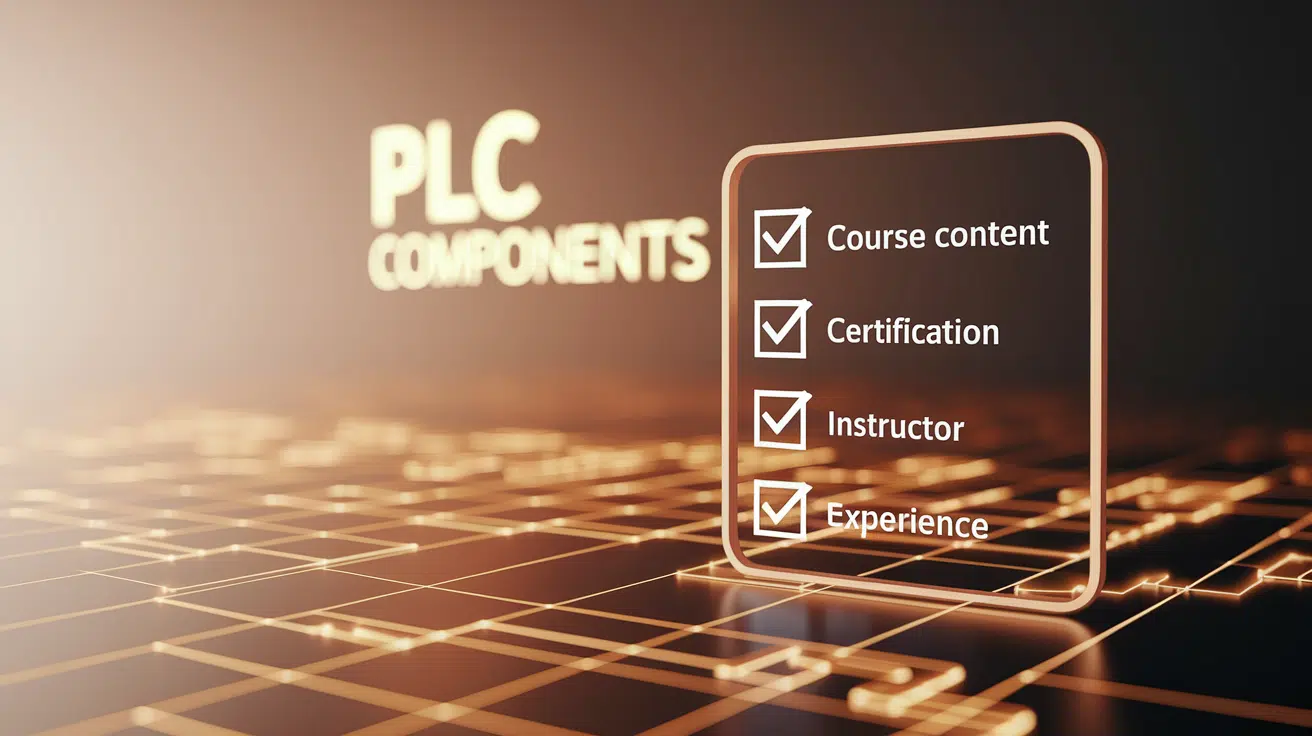If you’ve ever wondered how machines in factories know what to do or how automated systems work behind the scenes, the answer often involves PLCs, short for Programmable Logic Controllers.
Learning how to program these powerful tools can open up exciting job opportunities in industries like manufacturing, energy, and more.
Even if you are starting fresh or looking to grow your technical skills, a PLC programming course is a smart and practical way to boost your career in automation.
Let’s break down why it matters and where you can get started.
Why Take a PLC Programming Course?
There are several reasons to take a PLC programming course, as it provides valuable skills and opportunities to advance your career in automation and industrial technology:
Demand for PLC Programmers:
- Growing need for skilled PLC programmers in industries such as manufacturing, oil & gas, automotive, and energy.
- Automation is a key driver in modern industries, requiring PLC specialists to manage and optimize complex systems.
- High demand for engineers and technicians with expertise in PLC programming due to the shift toward smarter, more efficient production methods.
Skills Gained in a PLC Course:
- Learn ladder logic, the fundamental programming language for PLCs, essential for automating industrial systems.
- Gain expertise in writing and editing PLC programs, equipping you to apply automation solutions in real-world industrial applications.
- Develop troubleshooting skills to diagnose and resolve issues in PLC-controlled systems, along with hands-on experience in configuring and interfacing with PLC hardware.
Top Online PLC Programming Courses

There are various top online PLC programming courses available, each offering unique features and benefits to help you build your expertise in the field:
1.Udemy – PLC Fundamentals Level 1
Overview: A comprehensive course designed for beginners, covering PLC programming fundamentals to advanced concepts.
Duration: 25 hours 16 minutes.
Cost: $45.15 (often discounted).
Key Features: Includes downloadable resources, practical assignments, and quizzes.
Benefits:
- Learn at your own pace with lifetime access to course materials.
- Hands-on projects and examples to reinforce learning.
- Receive a certificate upon course completion for professional recognition.
2. Master PLC Programme
Overview:
This course covers both hardware and software aspects of PLC systems, teaching programming techniques, troubleshooting strategies, and the integration of PLCs in real-world industrial settings.
Duration: Approximately 4 hours of video content.
Cost: Subscription-based ($29.99/month, with a 1-month free trial).
Key Features: Interactive video lessons, expert-led instruction, downloadable learning materials
Benefits:
- Learn about PLC systems used in actual industrial environments
- Gain insights from seasoned industry professionals with years of hands-on experience.
3. Most Complete PLC Training
Overview:
This course covers both hardware and software aspects of PLC systems, focusing on programming techniques, troubleshooting strategies, and the integration of PLCs in real-world industrial environments.
Duration: Approximately 4 hours of video content.
Cost: Subscription-based ($29.99/month, with a 1-month free trial).
Key Features: Interactive video lessons, expert-led instruction, downloadable learning materials
Benefits:
- Learn about PLC systems used in actual industrial environments
- Gain insights from seasoned industry professionals with years of hands-on experience.
4. PLC Technician – Certificate Program
Overview:
The PLC Technician I Certificate Program offered by the University of Houston-Downtown (UHD) provides a foundational understanding of Programmable Logic Controllers (PLCs), focusing on their practical applications in industrial settings.
Duration: Approximately 32 weeks of part-time study.
Cost: Pay-as-you-learn: $440 for Module 1; subsequent modules at $70 each. Full program: $1,700 for all 19 modules.
Key Features: Web-based curriculum with 19 interactive modules, use of PLCLogix 500, a PLC simulator with 250 pre-built lab projects.
Benefits:
- Designed for individuals with little or no prior PLC experience.
- Emphasis on practical, real-world applications of PLCs.
- Flexible, self-paced learning with continuous enrollment.
5. Wake Tech – PLC Programming Certificate
Overview:
The PLC Technician I Certificate Program by the University of Houston-Downtown (UHD) provides foundational knowledge of Programmable Logic Controllers (PLCs), focusing on their practical applications in industrial environments.
Duration: Approximately 32 weeks of part-time study.
Cost: Pay-as-you-learn: $440 for Module 1; subsequent modules at $70 each.
Key Features: Web-based curriculum with 19 interactive module, use of PLCLogix 500, a PLC simulator with 250 pre-built lab projects.
Benefits:
- Ideal for individuals with little or no prior PLC experience.
- Emphasizes practical, real-world PLC applications.
- Flexible, self-paced learning with continuous enrollment.
What to Look for in an Online PLC Course?

When choosing an online PLC course, it is important to consider some key factors to ensure you receive the best learning experience:
Course Content and Structure
It is crucial to choose a course with comprehensive modules that cover both theoretical concepts and practical applications.
Hands-on practice is key to mastering PLC programming, so look for courses that offer real-world simulations and projects to solidify your learning.
Certification and Recognition
Certification from a recognized provider can significantly enhance your career prospects by showcasing your expertise to employers.
It demonstrates your commitment to learning and can make you stand out in a competitive job market.
Instructor Experience and Course Reviews
A knowledgeable instructor with real-world experience can provide valuable insights and guidance throughout the course.
Additionally, checking peer reviews and ratings will help you assess the quality of the course and ensure it meets your learning needs.
Resources for PLC Programming
In addition to online courses, there are several valuable resources for further enhancing your PLC programming skills, such as books, forums, simulators, and webinars:
| Resource | Description | Platform/Provider |
|---|---|---|
| Books, Forums, and Communities | Learn widely recommended books on PLC programming and join online forums and communities to engage with experts and fellow learners for ongoing learning. | Amazon, Reddit (r/PLC), PLCtalk |
| Practice Projects and Simulators | Use PLC simulators and work on practice projects to experiment with programming and troubleshooting in a virtual environment for hands-on experience. | PLCSim, LogixPro, Factory I/O |
| Webinars and Online Workshops | Participate in webinars and workshops conducted by industry professionals. These events often provide live demonstrations, problem-solving sessions, and the opportunity to ask questions in real-time. | Udemy, AutomationDirect, YouTube |
Conclusion
Taking a PLC programming course can significantly enhance your skills and open doors to exciting career opportunities in automation and industrial technology.
With various online courses available, you can choose one that fits your learning style, schedule, and budget.
By gaining expertise in PLC programming, troubleshooting, and working with hardware, you will be well-equipped to meet the growing demand for skilled professionals in industries like manufacturing, oil & gas, and more.
Do not miss the chance to boost your career with the right PLC programming course.
Frequently Asked Questions
How Long is a PLC Programming Course?
The duration varies by course, but most online PLC programming courses range from a few hours to several weeks, depending on the depth and complexity of the material.
What is the Cost of PLC Programming Courses?
PLC programming courses can range in price from free to several hundred dollars, depending on the provider, course length, and certification options.
Is PLC Programming Difficult to Learn?
While it can be challenging initially, PLC programming is highly logical and systematic. With consistent practice and learning, it becomes easier to master.
Can I Learn PLC Programming Without Prior Experience?
Yes, many online courses cater to beginners and teach the fundamentals of PLC programming from the ground up, so prior experience is not required.












